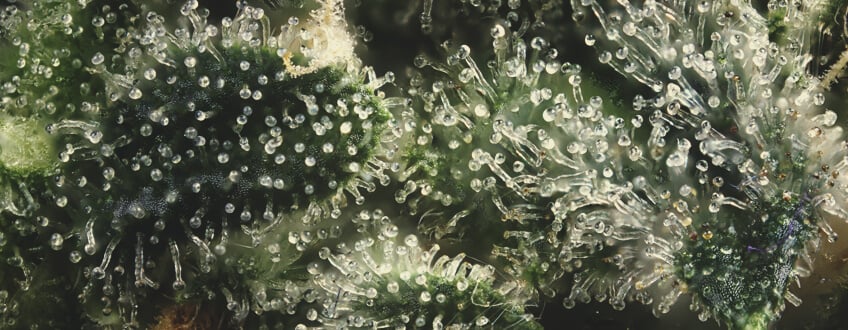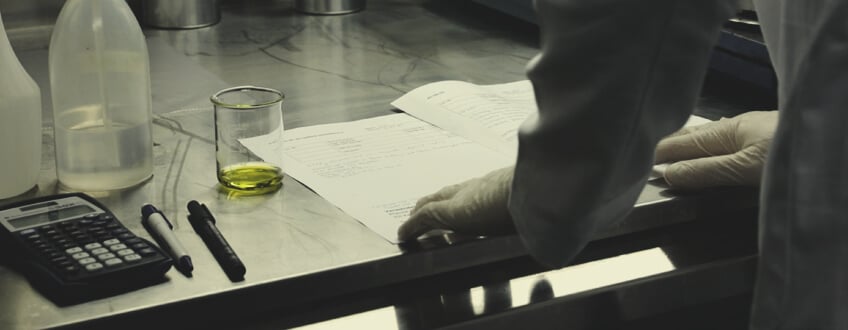.

The Legal Status of CBD in the UK in 2020
In late 2018, UK legislation made medicinal cannabis available with a prescription. Although now deemed a medicine, the situation in regards to CBD in the UK is both a win and a loss for manufacturers and consumers. In this article, we look at the current legal status of CBD in the UK, and what it means for consumers and the industry at large.
An update on the status of CBD in the UK (2020).
Contents:
In November 2018, new UK legislation was passed that made cannabis-derived medicine available via prescription by a limited number of doctors. Cannabis moved from a Schedule 1 drug (i.e. drugs without medicinal use) to Schedule 2, granting it the same legal status as opiates and other strictly regulated prescription drugs.
With the approval of cannabis-derived medicinal products such as Sativex and Epidiolex, the Medicines and Healthcare products Regulatory Agency (MHRA) officially recognized cannabinoids, including cannabidiol (CBD), to have valid applications.
For the UK, this was a big milestone. Yet, for consumers looking to freely obtain CBD products, and for the CBD industry itself, things don’t look too rosy. A complex web of outdated regulations means individuals are now at risk of losing access to the CBD products they have come to rely on.
CBD: An Overview
Cannabidiol is the second most abundant cannabinoid found in Cannabis sativa, a species that includes both non-psychotropic cannabis (including hemp) and marijuana.
CBD is secreted from the resin glands of trichomes, which are tiny outgrowths that appear on the buds and leaves of cannabis plants. In a comprehensive 2018 review[1] by the World Health Organization, CBD was deemed non-toxic and well tolerated, opening up a greater conversation surrounding the cannabinoid’s potential applications worldwide.
A growing body of preclinical and early clinical research points to CBD’s versatility, and it has been researched for its potential effects on numerous conditions of the mind and body. Aside from a few specific applications, CBD has yet to be approved as a treatment for most of the conditions it’s believed to assist with.
Moreover, the cannabinoid is often used as a daily supplement to support general health and well-being. A few drops of CBD oil, taken in much the same fashion as other supplements and vitamins, has become a regular part of many people’s lifestyles.

What Happened?
Considering the historical lack of cannabis regulations in the UK, the MHRA’s decision[2] to medically classify CBD came as somewhat of a surprise.
The reasons are twofold: the call was primarily made in response to a worrying trend of reckless CBD manufacturers making grandiose medical claims about their products.
Now, the MHRA requires all licensed medicinal products to meet safety, quality, and efficacy standards to ensure the health of the consumer. While this is an effective manoeuvre to quell irresponsible producers from selling misleading products, it also puts quality manufacturers at risk of losing their business.
The new enforcements ushered in by reclassification appeared after 18 CBD companies around the country received documentation of the MHRA’s opinion, forcing producers to shut down operations in medias res. From now on, a company must apply for a license or “marketing authorization” to produce medical CBD products. This comes alongside a whopping £103,000 fee to comply with new medical quality mandates.
CBD in the UK: It’s Legal Now, but Is It Accessible?
What’s more, the new classification brings with it a host of requirements that significantly impact the sale of freely available (i.e. "non-medicinal") CBD products such as CBD oils or CBD snacks in the UK.
While the new mandates will benefit patients taking medicinal cannabis for certain conditions such as Dravet syndrome, there is a lack of ordinances allowing consumers to continue purchasing CBD products. The result is an almost absurd situation where the MHRA has acknowledged the medicinal potential of CBD, yet is limiting access to it for existing consumers.
CBD is no longer a controlled substance, meaning it is 100% legal in the UK. In practice however, things have become complicated.
Companies legally selling CBD products are not allowed to make any claims about medical benefits, which by itself is strange, seeing that this comes at the same time as the approval of cannabis-derived medicines. According to the MHRA and FSA (Food Standards Agency), companies are only allowed to advertise CBD as a food supplement under novel food guidance.
Likewise, THC, while being recognized as having medicinal properties, is still illegal. Any CBD product sold in the UK must derive from EU-grown hemp and cannot have more than 1mg THC per dose/package.
A Looming Novel Food Deadline
CBD manufacturers have been given a deadline of March 2021 to submit an application for a novel food license. Any UK-based company operating in the CBD industry from March 2021 onwards will require authorization from the FSA. For the booming CBD market, this poses big challenges. In fact, it may even spell its end.
According to Emily Miles, Chief executive at the FSA: "The CBD industry must provide more information about the safety and contents of these products to the regulator by March 2021, or the products will be taken off the shelves".
The FSA said that producers were slow to submit their products, which forced the agency to impose the deadline. As of this time, hardly any of the many available CBD products in the UK have undergone the approval process. By next year, these products will be pulled from the market.
One issue in regards to the status of CBD in the UK is that it is under-regulated. There exists no updated guidance for these products. Instead, the industry needs to refer to existing product regulations in regards to cannabis, food supplements, and general product safety.
Applying for novel food status, or any other type of license related to CBD or hemp, requires significant capital, time, and resources that many vendors and producers don’t have.

A Booming Market for CBD
In recent years in the UK, consumer interest in CBD products has exploded. In fact, experts predict a massive 50% increase[3] in consumer spending on CBD in the UK from 2019 to 2020. As a result, the market had been flooded with a plethora of CBD products—and not all of these are from reputable sources.
Testing has revealed many CBD products to contain unlisted and potentially hazardous ingredients. Many times, products also contain illegal levels of tetrahydrocannabinol (THC), or contain far less than the claimed amount of CBD (if any).
While weeding out bad players in the industry is definitely welcome, the new hurdles are also affecting quality producers in this sector. In other words, small companies with good practices may not be able to afford the licenses necessary to survive.
Game Changer? European Court Rules “CBD Is Not A Narcotic Drug” (Nov. 2020)
The November 19, 2020 ruling by the European Court of Justice was a huge win for the CBD industry. The “KanaVape ruling”, following a six-year court battle between CBD company KanaVape and the European government finds that CBD cannot be regarded as a narcotic, and that the provisions on the free movement of goods within the EU are applicable. This is huge news, and may well be the long-awaited game changer for the CBD industry in Europe and the UK.
In its ruling, the ECJ notes that to define the term ‘narcotic drug’, EU law makes reference to two UN conventions, the Convention on Psychotropic Substances and the Single Convention on Narcotic Drugs. CBD is not mentioned in the former and, while an interpretation of the latter might lead to its being classified as a drug (as it is a cannabis extract), such an interpretation would be “contrary to the general spirit of that convention and to its objective of protecting ‘the health and welfare of mankind.’”
The court also notes that, according to current scientific knowledge, which had been taken into account for the ruling, CBD "does not appear to have any psychotropic effect or any harmful effect on human health."
How Does The KanaVape Ruling Affect The UK?
The Managing Director of the Cannabis Trades Association, which is the largest cannabinoid-centric trade association for the UK and Europe, Siân Phillips says that the ruling has enormous relevance to the EU and will also have a real impact on the UK. This is because the ruling will be part of the UK post-Brexit law and that it will open up the market for trade in cannabis plant extracts and potential CBD flower sales in the UK.
“Normally, the ECJ ruling is the final word,” says KanaVapes’ Antonin Cohen, who calls the ruling a great result for Europe and France. He hopes that the ruling will shift the EC’s focus from classifying CBD as a narcotic.
He is cautiously optimistic, saying that at this time it is not certain whether courts may possibly look to add new restrictions. Previously, more than 50 companies looking to secure authorization to sell CBD products had been denied Novel Food applications, following a preliminary decision by the European Commission which back in July said that CBD is a narcotic and not a food. He now hopes that after this new ruling the EC will approve Novel Food applications for CBD products.

Current Status of CBD in the UK
At the time of this writing (December 2020), the CBD situation in the UK looks like this:
- Importing CBD: CBD products can be imported into the UK, but there must be third-party laboratory proof that they do not contain illegal levels of controlled substances.
- CBD supplements: Products on the market before 13th February, 2020 require a validated submission or approved novel food application. New products (after 13/2/20) require a novel food application.
- CBD cosmetics: CBD-derived cosmetics and beauty products require a Cosmetic Product Safety Report (CPSR).
- CBD e-liquids: CBD intended for vaping needs to comply with non-nicotine e-liquid regulations, i.e. General Product Safety Directive.
- CBD bud: The sale of CBD flowers (buds), regardless of origin, remains prohibited, even if THC content is below 0.2%.
- The maximum level of THC allowed is 1mg per product/package. This includes buds and leaves, along with cannabis resin in any form
The KanaVape ruling is now removing the stigma of CBD being regarded as a drug, placing it on the same level as “Novel Foods”. This is no doubt a big step in the right direction. In a best case scenario, if the UK adopts the ruling, it will allow the free sale of CBD products, and possibly even CBD flowers, as "Novel Foods" on the UK market. However, nothing is set in stone yet, and things could still go in the one direction or the other.
An Uncertain Future for CBD in the UK?
Ultimately, regulations should be to the benefit of consumers. After all, it’s a good thing if consumers are able to safely and confidently purchase CBD products. Yet, as it stands currently, old regulations are still in effect which are still limiting consumer choices and which pose a threat to the flourishing CBD industry in the UK. For the CBD industry in the United Kingdom, the immediate future is still looking uncertain. The KanaVape ruling, shining like a light at the end of the tunnel is however giving hope for both, the CBD industry and UK consumers.
- WHO Expert Committee on Drug Dependence Critical Review: Cannabidiol (CBD) https://www.who.int
- MHRA statement on products containing Cannabidiol (CBD) https://www.gov.uk
- UK Demand For CBD Products Soars Amid Covid-19 Pandemic https://www.forbes.com


































